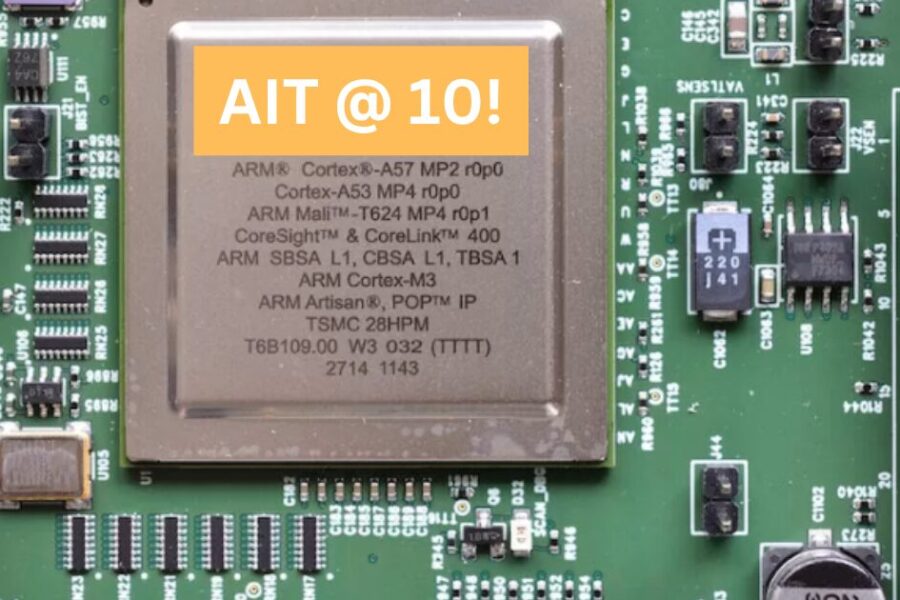In November 2015 Archives of IT was registered as a charity with the Charity Commission of England and Wales. Its aims were to educate the public on the history of IT, particularly through the provision of a digital archive of oral history interviews, research and educational resources.
The idea for the charity was the brainchild of Roger Graham OBE (1939-2025) who was passionate about recording the stories of pioneers in computing and IT, preserving them for posterity and inspiring future generations to develop their STEM skills and embark on a career in the tech sector.
Roger had a six-decade-long career in computer services stretching back to the 1950s. He had worked in heavy electrical engineering and then aircraft design before joining IBM and then growing BIS, the business which provided MIDAS banking software to many financial institutions. He was a master at the Worshipful Company of Information Technologists (WCIT) 2004-2005.
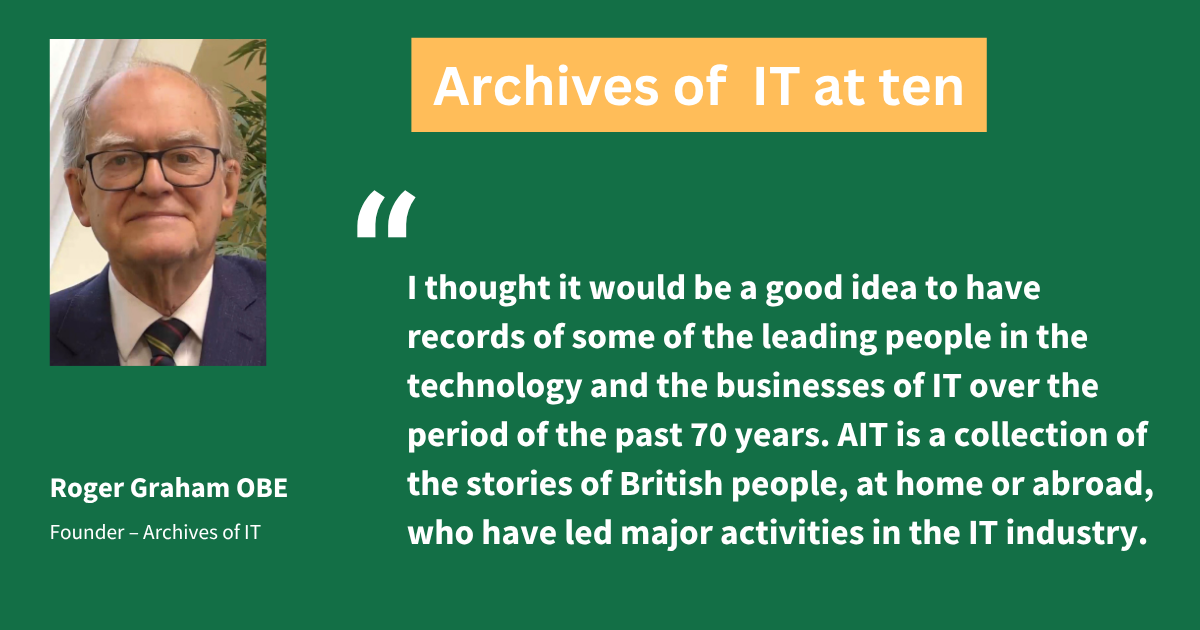
His opinion was that up to this point heritage work involving IT was focused on saving the history of computers, hardware and games but little was being done to preserve the social and oral history of the people behind the technology.
Speaking in 2023 he said: “I thought it would be a good idea to have records of some of the leading people in the technology and the businesses of IT over the period of the past 70 years. AIT is a collection of the stories of British people, at home or abroad, who have led major activities in the IT industry.”
Roger was the first AIT interviewee in August 2015, interviewed by Computer Science Researcher and Author, Professor Martin Campbell-Kelly who would become a trustee in March 2021. Now ten years later the archive has approaching 300 interviews in its collection. The archive captures the stories from post-Second World War computing pioneers to today’s leading tech entrepreneurs, providing insight on topics such as women in STEM, iconic tech companies, mobile phones, the internet and AI.
Helen Carter, who was Roger’s Executive Assistant in 2015, was instrumental in establishing the charity and eventually became AIT’s Administrative Director (and still plays an important role today). She registered the organisation with the charity commission, attended meetings with Roger and established strong relationships with organisations such as the WCIT and BCS, Chartered Institute for IT, as well as setting up the interviews and arranging the videoing.
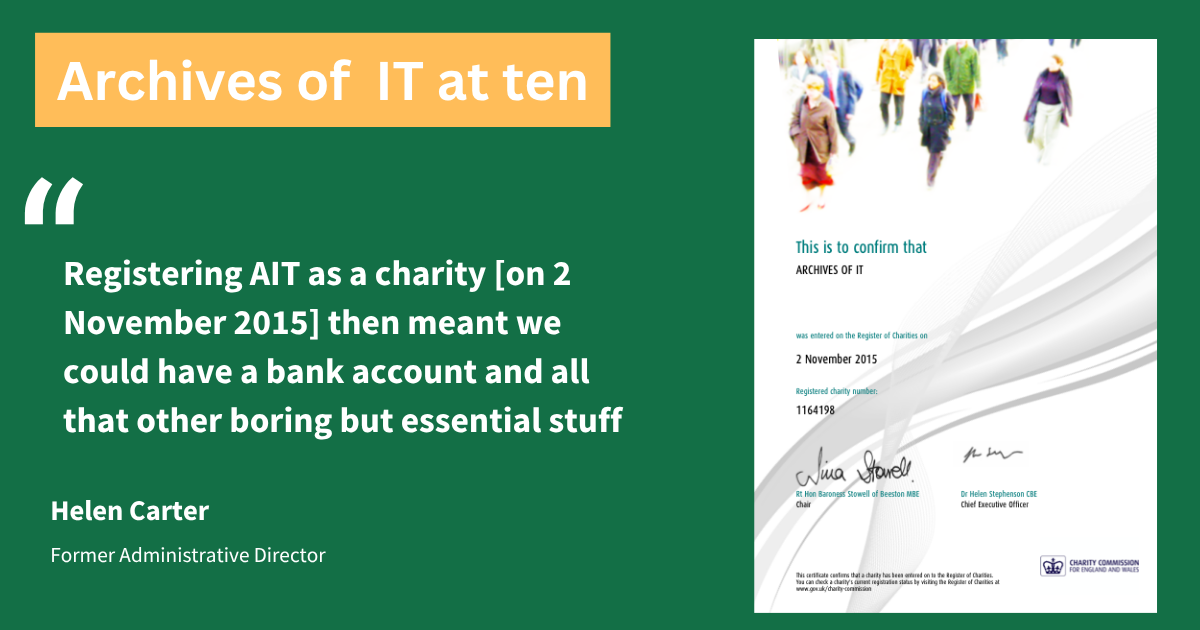
“Roger had the ideas and I made them happen,” she says. One of the early milestones she recalls was recruiting the first trustees to enable AIT to be registered as a charity. “Registration then meant we could have a bank account and all that other boring but essential stuff.” Following that the small team recruited former Financial Times’ Senior Technology Correspondent, Alan Cane, as AIT’s first regular interviewer followed by technology journalist, author and professor, Richard Sharpe. They were joined by transcriber, Susan Hutton, and Roger’s daughter, Annabel, who worked on early abstracts along with Helen.
“I was present for a few of [the early interviews]. It was a great feeling and hearing the stories of the early pioneers really brought home how important it was not to lose this history. We had early interviews videoed by Boardie and I remember sending a portable hard drive back and forth between us with the interview data on.”
Helen says some of her highlights were: “Seeing the website launch, attending an education event I helped organise in London with Elizabeth Sparrow and signing up schools to trial AIT’s lessons.”
AIT’s first trustee – John Leighfield CBE

AIT’s first trustee in 2015 was John Leighfield CBE, whose career as a pioneering IT user began in 1962 at Ford in Dagenham in systems analysis. He then joined Plessey in 1965 becoming the head of IT and later joining British Leyland before eventually joining education IT supplier RM, where he was chairman for 18 years. John was President of the British Computer Society,1993–1994, and founder member and Past Master of the WCIT, 2015-2016.
John had known Roger Graham as a friend, colleague and competitor from the 1960s. “Roger talked to me about AIT when he was first mulling over setting it up and asked me if I would help and become a Trustee,” he says. “I immediately gave a very positive response and offered what help I could, especially in approaching some of the early interviewees.”
John has a general interest in archives and education, and as someone involved in the early days of the growth of the UK industry, he says he felt there was great value in capturing the experience and views of those who created the IT transformation in the UK. “Much of these experiences had never been documented before, even though the effect of it all contributed to a complete revolution in the way organisations and people went about their lives as a result. I felt that a good archive would be of huge value for people who were trying to understand how the changes happened.
“For me the whole thing is a highlight. Roger’s ambition has been achieved beyond what I thought possible when we started. We have created an archive of enormous scope and quality with real long-term value and something that researchers will mine for years to come. Roger was always impatient to show almost immediate ways of exploiting the archive and the schools programme has certainly been of value in the short term.”
By January 2016 AIT was regularly scheduling interviews with IT pioneers, all of which at the time were in-person. Many of these early interviews were recorded by Video Production Services company, Boardie at various venues such as the interviewees homes or at the London offices of the BCS, Chartered Institute for IT but mainly at the Worshipful Company of Information Technologists’ (WCIT) headquarters in central London.
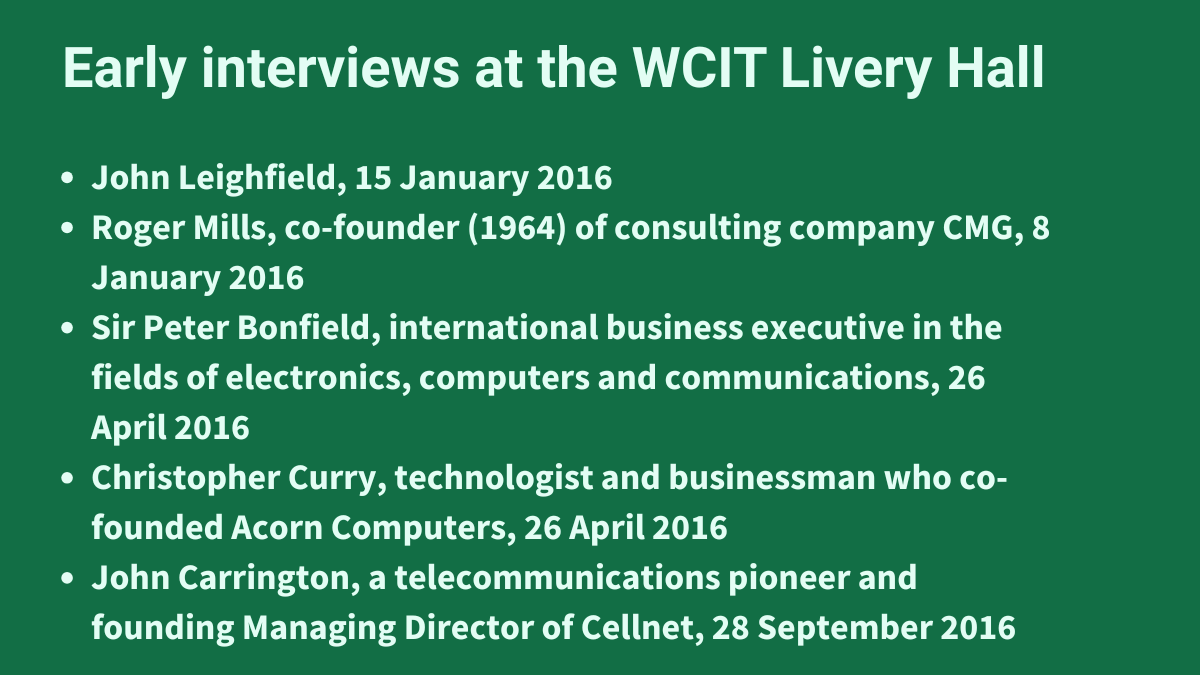
AIT’s first Executive director – Dr Tom Abram – expanding the educational offer
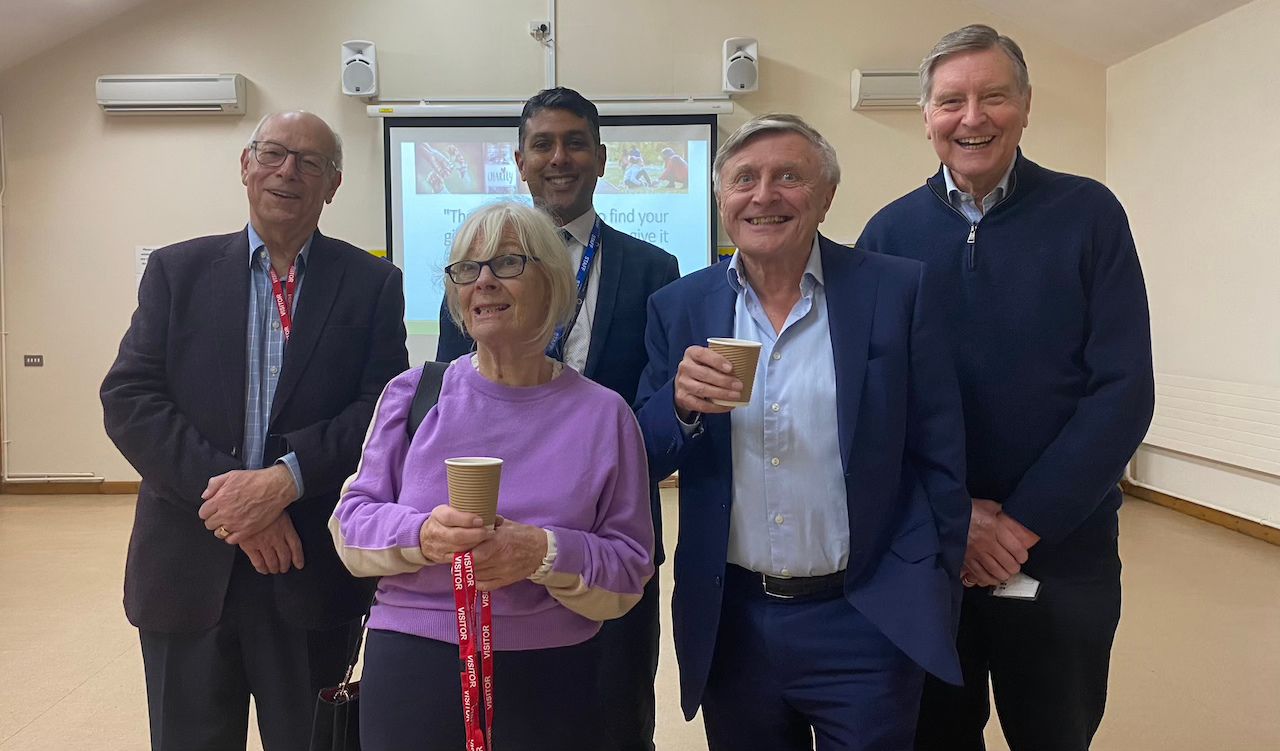
To keep the momentum and manage the day-to-day running of AIT Dr Tom Abram joined in 2017 and was able to expand the three main aims of the charity, which are: publishing interviews with key players in UK IT sector, IT career focused programmes for primary schools and research by universities into the social and economic experiences of AIT interviewees.
In 2017 AIT would pass the milestone of 50 interviews in total with interviewees such as technology pioneer, entrepreneur and philanthropist, Dame Stephanie Shirley (at her home), Sir Robin Saxby (at the WCIT), the first CEO of Arm and Sir Mike Lynch (at his home) and Dr Mike Short CBE, former Chairman of the Global GSM Association, would join as a trustee.
From 2013-2016 Tom was a member of the board of trustees at BCS and from 2014-2016 he was Chairman of BCS Learning and Development, where he helped provide educational and professional products and services for the IT industry, including certification, qualifications, publishing and consultancy on skills and professional development. This allowed him to harness one of Roger’s key aims for AIT to provide free educational resources for schools to encourage the study of IT and promote it as a worthwhile career.
Since 2018 AIT’s Education programme has created more than 40 lesson plans and activities. It has been supported by donations from leading figures in the IT industry such as Sir Robin Saxby, engineer and founding CEO of ARM, who has also given presentations in collaboration with AIT at Little Thurrock Primary School in Essex and online.
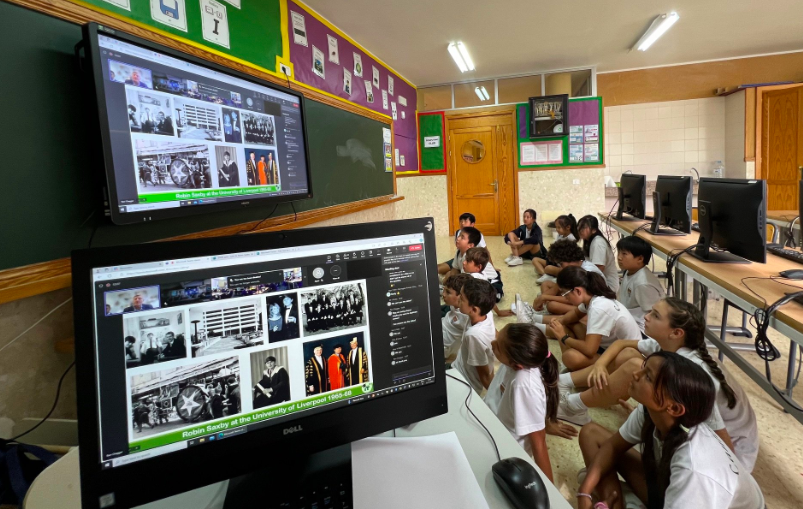
All of the resources, which have been designed in accordance with the Government’s Careers Strategy of 2017 and the Gatsby Benchmarks for schools produced in 2018, run alongside the Teach Computing Curriculum. They are available to download on our Teacher Tools page and the Times Educational Supplement (TES) Resources site where they have had thousands of downloads in the UK and internationally from Canada to Russia, Australia to the Middle East, Europe and South East Asia.
From 2021 Tom led the charity as Executive Director, a role he stepped down from in May 2024 due to ill health. He died in the November leaving the charity with legacy of professionalism and passion.
AIT’s Chair of Trustees – John Carrington

Having been interviewed by AIT in 2016, John Carrington, a former Master at the WCIT, kept in touch with developments through his friendship with Roger. He became a trustee and took on the role of chairman in February 2021, a role which he still manages with dedication today.
“I saw Roger regularly as a fellow Past Master of the WCIT and he would update me on the progress of the charity. During the Covid-19 lockdown of 2020 we kept in touch virtually and Roger asked if I would become a trustee of the charity and perhaps take his place as Chair.”
One of the first measures John implemented was to increase the online interviews conducted by AIT as in-person interviews had been severely affected by the coronavirus pandemic.
“To keep the archive growing I suggested we start to use online video calls for interviews as the quality had improved enormously. This we did and still use this for many of our interviews. We also needed to enhance the core AIT team. Tom Abram, who had been a major volunteer at the charity became the Executive Director working full-time still as a volunteer. We also recruited the first professional Archivist.”
In January 2024, through the work of our Archivist Stephanie Nield, who joined in October 2022, AIT received a Scoping Grant from The National Archives to work with a consultant to look after the history of the Dennis Blackwell collection and make it available to interested researchers. AIT was given custodianship of this extensive, nationally important collection by his family in 2023.
We had more good news from The National Archives in April last year when AIT’s online resource was entered on to its Discovery database, an online catalogue which holds the records of more than 3,500 archives across the country, making it more visible to archive researchers. These projects have raised the profile of AIT and its credentials as a valuable and significant resource on the UK’s IT industry.
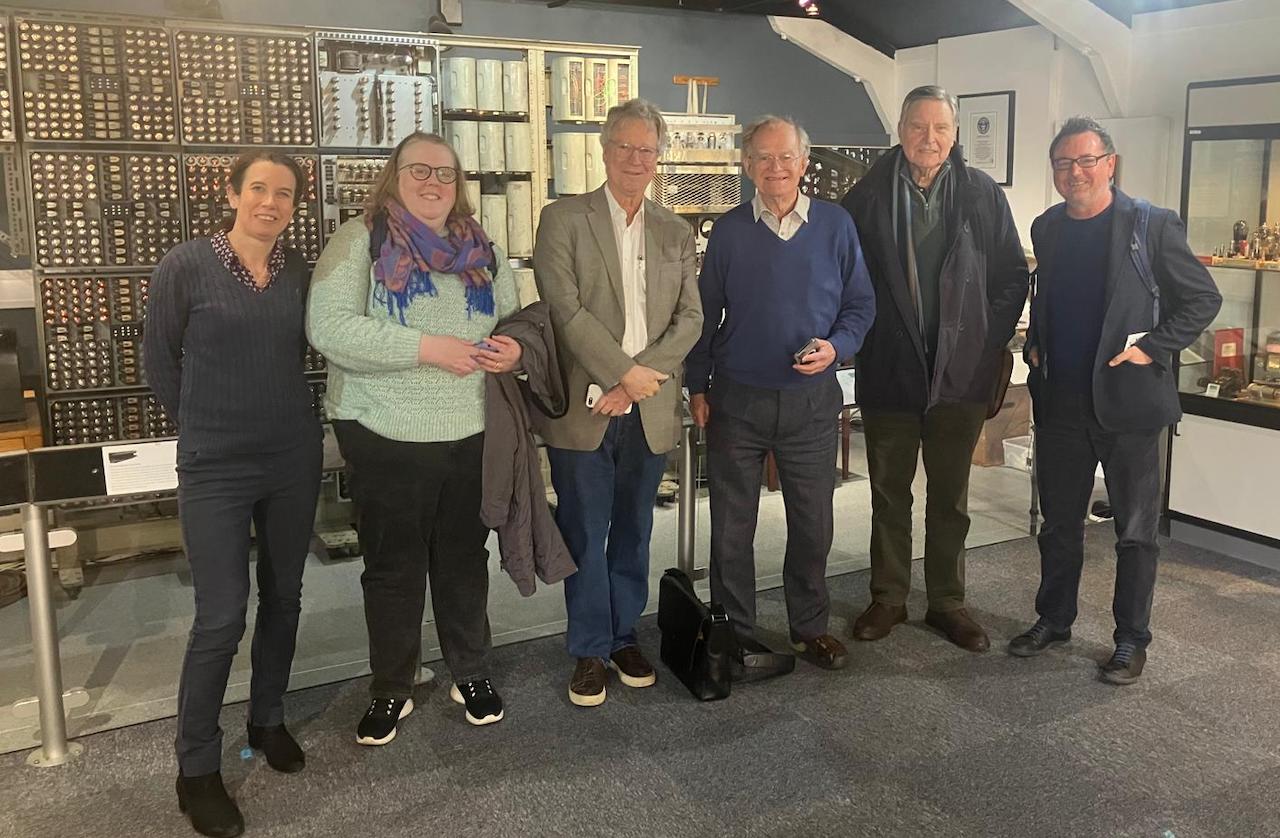
In September 2023 AIT published an in-depth report on Human-Computer Interaction. From Punch Cards to Brain Computer Interfaces: 75 Years of Human Computer Interaction and its Impact on Society developed the story of HCI by leveraging AIT’s unique knowledge base, utilising our archive of interviews and conducting six new interviews. We are very grateful to the WCIT for funding this work in line with its aim of providing leadership for the IT industry.
“The Charity has always had a close relationship with the WCIT and we continue to interview many distinguished members,” says John. “The Company was and is still very generous in the support they give to AIT for meetings and interviews as well as making a grant through the WCIT Charity to allow original research to be undertaken using archive material.
“I believe the socio-economic impact of IT over the past 75 years needs to be recorded and used for research. The people who caused the revolution and continue it today are a key gateway to understanding this impact. For example, research commissioned by AIT has shown that many very influential people in the growth of IT came from disadvantaged backgrounds. Impact was and is not determined by social status.
Sam Blaxland, Lecturer, Historian and Author at UCL uses AIT to show the socio-economic impact in his article, The Archives of Information Technology: More Than Just Computers
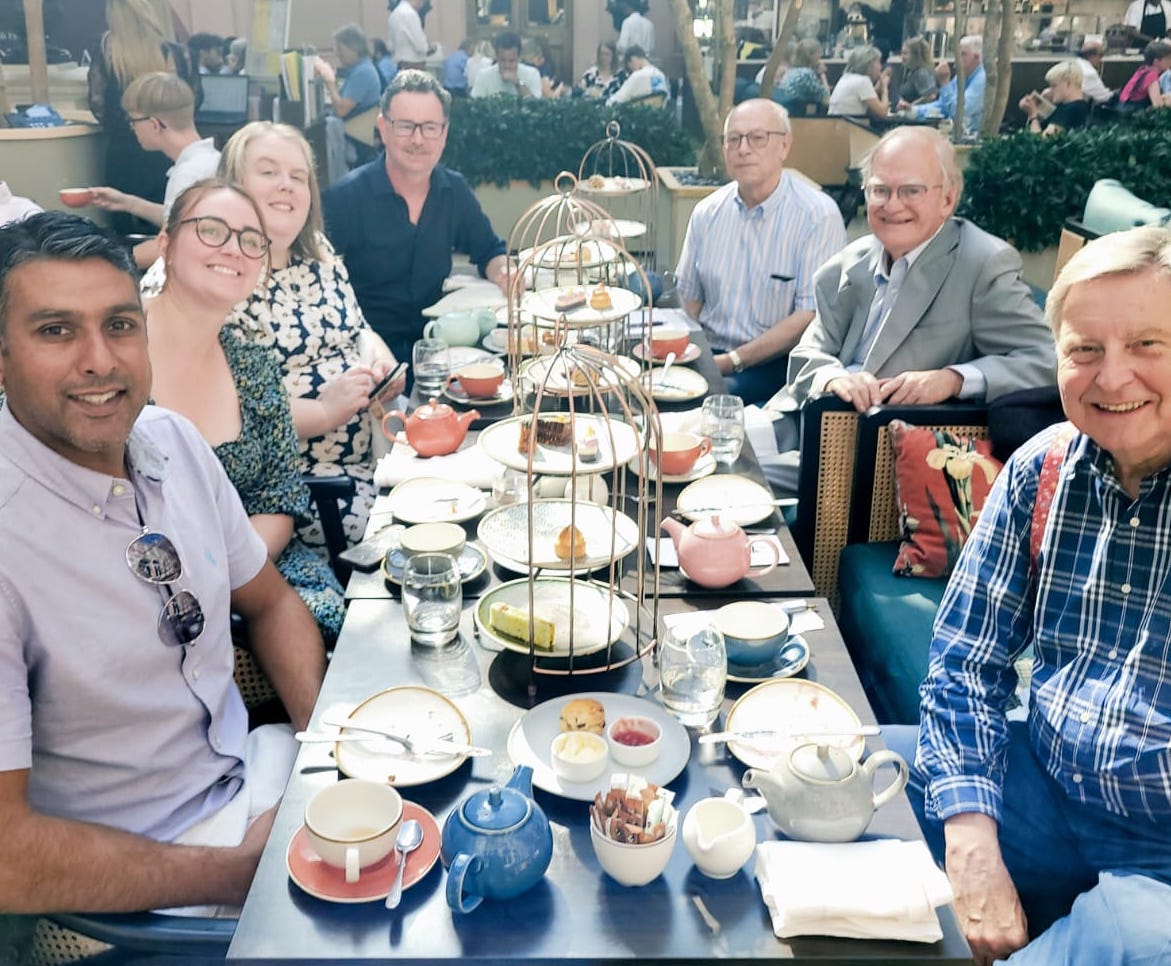
“We have formed a great core team at AIT. Tom Abram gave so much before his untimely death last year. We have been so fortunate to have Tola Sargeant take his place as CEO. Adrian Murphy and Stephanie Nield are an impressive Communication and Archivist duo. One of the key areas we have made great strides in is Education. Here the team of Katie Anderson and Ravi Chagger have done a fantastic job in creating online material, using the Archive, for primary school teachers to help them teach computing and enthuse their students about the opportunities IT has as a career. Our admin would have been chaotic without the work of Helen Carter. And the work of our Adviser, Mark Jones in outreach with universities is incredibly valuable. AIT punches well above its weight because of them.”
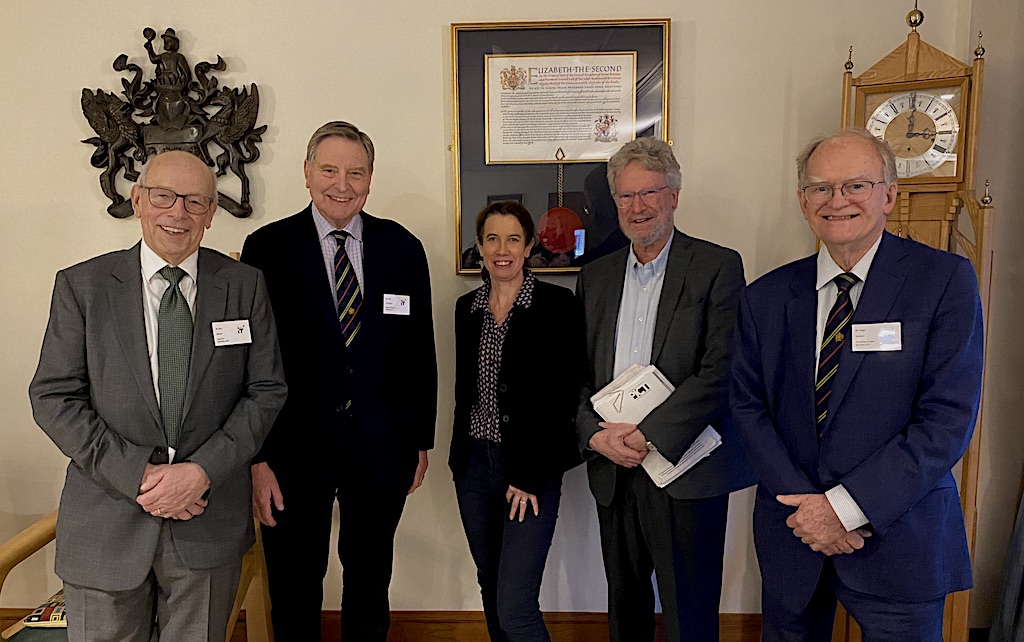
The past two years have been a progressive period for Archives of IT that has seen our work reach more audiences. This included AIT’s first Forum on the Histories of the Internet, which took place in January 2024. This was a coming together of information technologists and academics who shared their experiences working with the internet in its development, early years and more recently, both technically and academically. We transcribed the talks and they are available to view on the AIT website and YouTube. AIT was supported by the WCIT, with the use of its Livery Hall, and also received a small grant from the British Society for the History of Science. This was followed up with a second forum in January 2025 on Norms from the Digital Age: From Students to States.
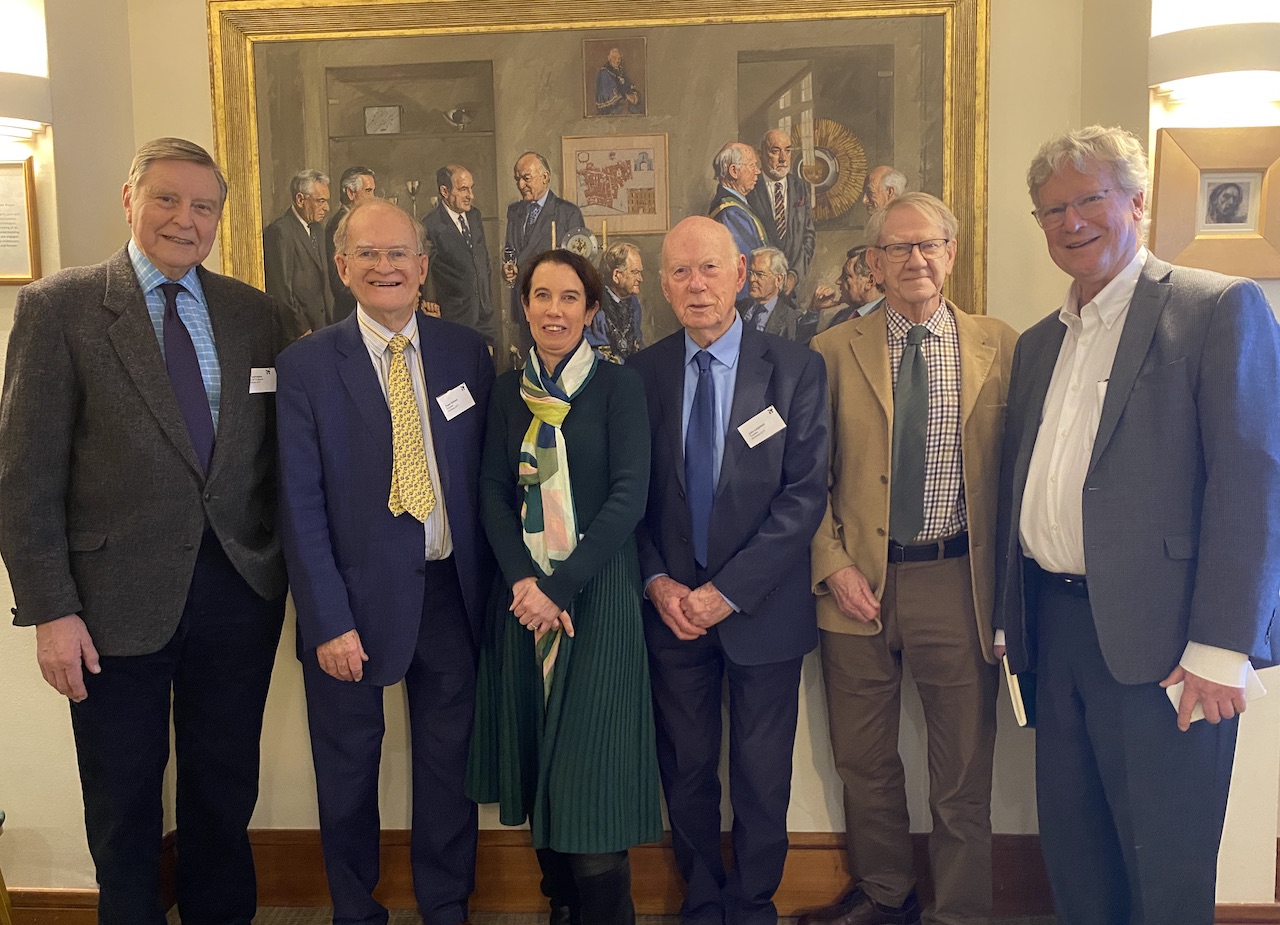
“The AIT Forums held at the WCIT Hall in 2024 and 2025 to discuss major issues affecting IT and led by Trustee Bill Dutton have been a great way to grow awareness of AIT especially in the university sector. The 2025 Forum on the Norms for the Digital Age was very well attended and enabled a wide ranging discussion of the industry especially in the wake of the Horizon scandal.”
Professor Bill Dutton
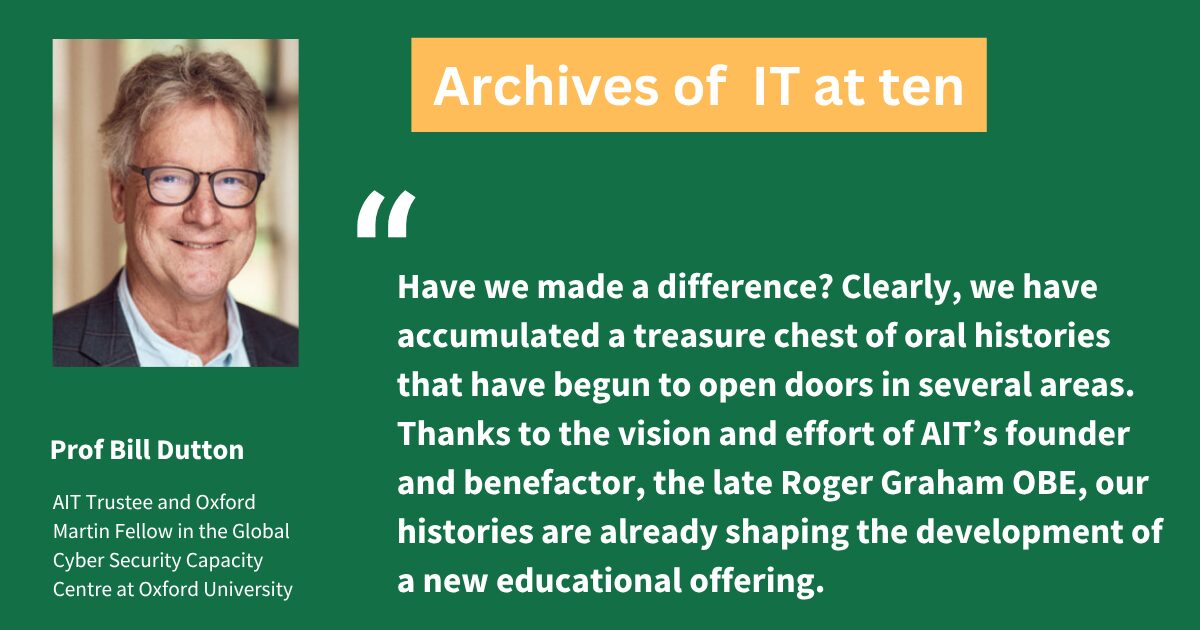
Professor William (Bill) Dutton joined Board of Trustees in 2021 at the invitation of Tom Abram, initiated by John Leighfield, and has since acted as chair of the Forum Programme Committee.
In 2002, Bill became the founding director of the Oxford Internet Institute (OII), and is currently a senior fellow. He is also an Oxford Martin Fellow in the Global Cyber Security Capacity Centre at Oxford University.
“As a trustee, I have continued to pursue my aim at and before the OII of bringing social scientists and social issues into the study of the shaping and impacts of the internet and related information and communication technologies,” he says. “For instance, colleagues at the AIT are presently developing interviews and events to learn what lessons can be derived from the UK’s Horizon Post Office Scandal – one recent IT disaster that requires a multi-disciplinary perspective.
“Tom put so much into his directorship that it took me months to realise that he was on a voluntary basis. This spirit of volunteerism across AIT continues to impress me. While also a volunteer, I joined with a personal mission to help bring people and ideas from the social sciences into the history of information and communication technologies. I was pushing an open door as AIT was more than willing to have a broad remit.
“My highlight, as a trustee, has been meeting so many leaders within the IT sector in Britain and abroad. In addition to the trustees, our oral histories of the field – in the words of leading actors in this history – has shown me that I only knew a small fraction of the multitude of people who have made major contributions to the industry, the technologies, and the policies and practices that it has shaped over decades. Certainly, the accumulated oral histories of these pioneers might well be our greatest contribution over the past decade.
“Have we made a difference? Clearly, we have accumulated a treasure chest of oral histories that have begun to open doors in several areas. Thanks to the vision and effort of the AIT’s founder and benefactor, the late-Roger Graham OBE, our histories are already shaping the development of a new educational offering. A major school is enabling students to write about the history of information and communication technologies by listening to key players in that history, drawn from AIT. And we are attracting attention to the people and choices made – the social aspects – of the history of IT in ways that complement our understanding of the bits and bytes of the technologies.
“Debate over information and communication technologies such as AI are most often focused on the future, not the past. However, knowledge of how we arrived at the present state of technology and society is valuable, if not a prerequisite, to speculating about its future. Video communication, mobile phones, personal privacy, the internet, and AI, all have histories, and a host of insights on those histories are available in the oral histories of the Archives of IT.”
Mark Jones – Adviser
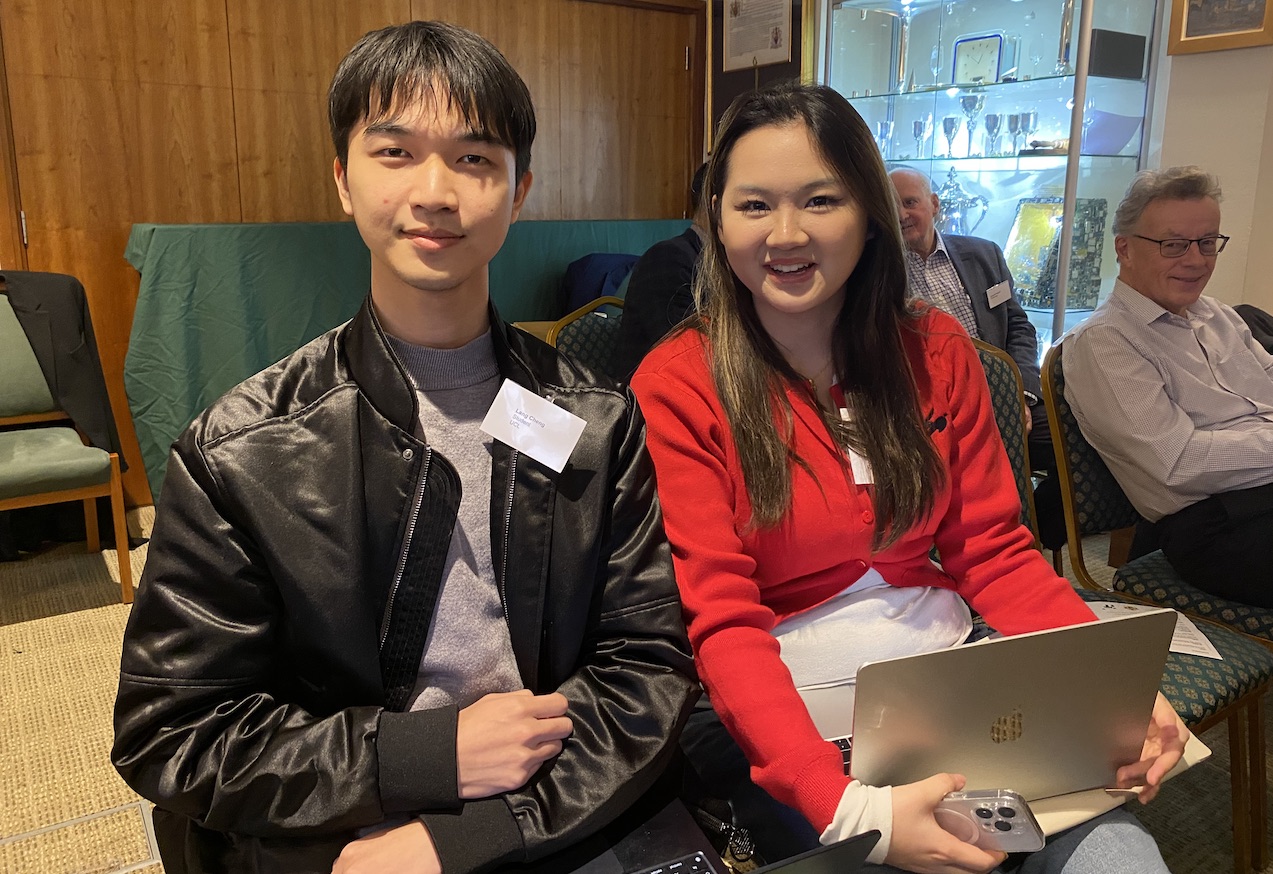
Mark, who spent 36 years in the IT industry, started working with AIT in 2018, at first conducting interviews and then working with universities on to facilitate placements with students.
Over the past five years AIT has taken on several university students for work experience. In 2024, for example, five students joined AIT for work experience from Swansea, Manchester and UCL universities as part of our ongoing programme to access and research the archive and create meaningful projects for undergraduates. They chose various topics to investigate using our archive, such as Women in the IT Industry and how management style has influenced the performance of UK IT companies, as well as analytical projects. Then at the beginning of 2025 two Chinese students from UCL’s Faculty of Education joined AIT’s Work Experience Programme and took part in our Forum in London under Mark’s guidance.
“I had worked with Tom Abram since 2000 when he was CEO of Mantix,” he says. “We’d kept loosely in touch after we both retired but he emailed me one day to say that he was, ‘working on a not-for-profit thing that I thought you might be interested in’. At that time Tom was expanding on the work already done at AIT, and my impression was that he was looking to move AIT on a gear. Roger Graham was heavily involved of course, and my day to day contact was with the immensely helpful and efficient Helen Carter.
“I thought the idea of capturing memories of the founders and leaders of the industry I’d worked in since the mid 1970s would be a great idea. Plus, it was unashamedly British and would reflect the role Britain played in an industry that is now dominated by the US, and I thought it important that our contribution wasn’t lost.”
Mark also worked with Tom providing data analysis of AIT’s interviewees’ experiences.
“One of my favourite experiences was interviewing Norman Sanders [November 2018 at his home in Suffolk]. Norman was a very early pioneer of computing, starting with his Cambridge days in the early 1950s. He had met all the people I’d only read about in historical accounts, and had a tale to tell about each of them – often warts and all. I became good friends with Norman and we met several times after his interviews with us, right up to his death earlier this year.
“Another highlight would be one particular student project. I’ll spare her blushes by not revealing her name, but the project started badly and neither of us thought we’d get anywhere, but suddenly it all clicked she ended up by writing a fascinating paper for us and it was rewarding to see her self-confidence shine through in the end.
“Other organisations house collections of hardware and systems, which are of course important, but AIT’s focus on the people is, in my opinion, more important. We tell not only what happened, but what people thought at the time. The failures, the larger than life characters, the hints at dubious goings on now and again – all these are there to listen to and read. This fleshes out the bare facts and adds to the richness of our knowledge of the time.”
Mark was also instrumental in making AIT’s research project on Human-Computer Interaction a success, working and mentoring Dr Elisabetta Mori who conducted the research for the project.
Dr Elisabetta Mori – Researcher and Interviewer
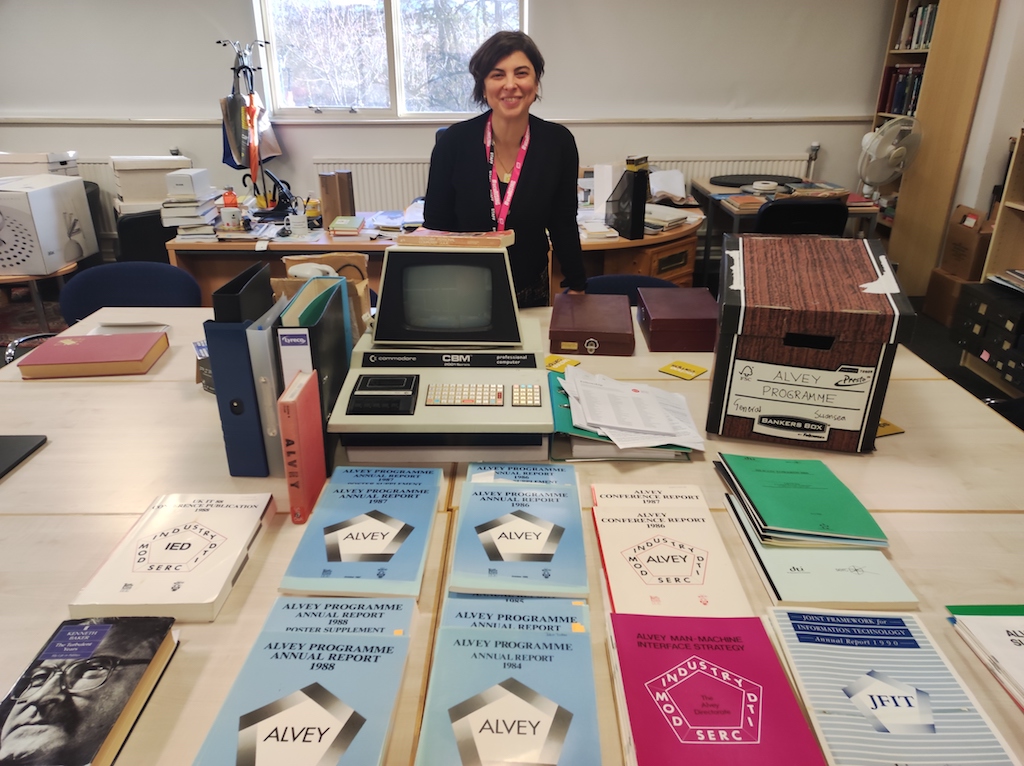
Dr Elisabetta Mori worked as an interviewer between 2018 and 2024, as a researcher, organising interviews, and also received a grant to work on the History of British HCI and its Impact on Society, supported by the WCIT.
“I met Helen Carter of Archives of IT in the US, at the Association for Computing Machinery workshop on Oral History of Computing, University of North Carolina at Chapel Hill in May 2016. That’s the very first time I heard about the AIT. I was living in Italy at the time but shortly afterwards I got the David Tresman Caminer Scholarship for the history and philosophy of computing, to pursue my PhD in London. I moved to the UK in late September 2016.
“In 2018 AIT contacted me about becoming an interviewer with them. I was thrilled, excited and scared. My first interview with AIT was with Dr Louise Bennett, at the British Computer Society in central London in July 2018. In 2018-2020 I remember recording several face-to-face interviews; usually the location was the old previous location of the BCS and at the WCIT; sometimes interviews were held in other locations, and it was sometimes very exciting; one of my favourites venues was the Reform Club, Pall Mall, London, where I interviewed the late Yorick Wilks.”
Tola Sargeant – CEO
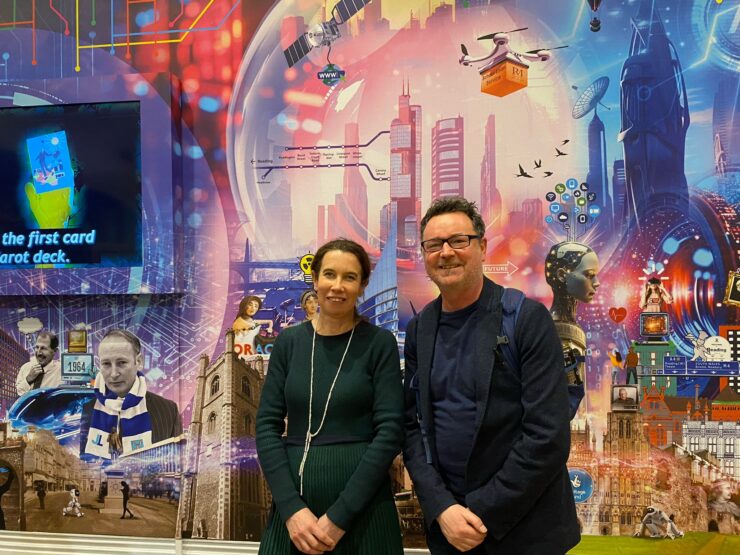
Tola was leading analyst firm TechMarketView, having spent many years analysing and advising companies in the UK tech market, when she was approached by Roger about becoming a trustee of AIT early in 2021. Passionate about both the UK tech sector and STEM education, Tola joined AIT as a trustee in April that year, a role she held until becoming CEO in September 2024.
“As a trustee, I enjoyed working with Tom to source interviewees for the archive or advise on content for the research reports and events. When he retired, I jumped at the chance to apply for the CEO role and work with the team to continue developing the archive and expanding the charity’s education work.”
As we mark Archive of IT’s 10th Anniversary, AIT continues to play a pivotal role in preserving the heritage of the UK computing industry and inspiring the tech pioneers of tomorrow. We are excited to enter our second decade with ambitions to deliver on Roger Graham’s vision for the charity by capturing and preserving the stories of even more computing pioneers and tech leaders for posterity; and taking those stories into even more schools to educate and inspire future generations of tech entrepreneurs.
